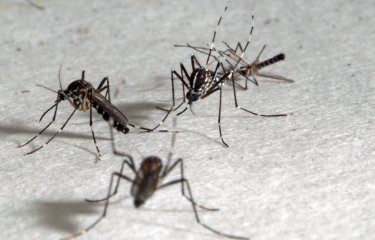The interconnectedness of our world has brought about significant challenges in public health, particularly with the rise of infectious epidemics. Globalization, climate change, and rapid urbanization have created fertile ground for the emergence and spread of diseases, as starkly illustrated by the COVID-19 pandemic. Among these threats, vector-borne diseases transmitted by mosquitoes and ticks are of increasing concern, especially in the Mediterranean region. In response, the European Commission initiated the MediLabSecure project, aiming to bolster preparedness and response capacities across 22 countries around Mediterranean region. This effort, coordinated by the Institut Pasteur and involving a consortium of European institutions, underscores the vital need for regional and multisectoral cooperation to combat these evolving health threats.
Strengthening Preparedness and response capacities: Mitigating Vector-Borne Diseases in a Globalized World
Since the end of the 20th century, the world has witnessed a rise in the number of infectious epidemics due to the disruption of the human-animal-environment interface. Globalization (trade, animals, and humans), climate change, proliferation of industrial densely populated livestock farms and rapid urbanization offer new opportunities for the emergence and spread of diseases. COVID-19 demonstrated how a pandemic can abruptly disrupt societies and trigger a global crisis.
Since then, there are rising concerns about vector-borne diseases whose incidence and spread are affected by these factors, allowing pathogens to re-emerge or invade new territory. This is particularly true for the Mediterranean region, which lies at the crossroads of several continents, resulting in intense trade, tourism and migration. More than ever, epidemic preparedness is the cornerstone to prevent a pandemic from happening again.
How do we contain diseases transmitted by vectors that don’t know borders? The answer lies in our capacity to detect unusual events at an early stage and implement control measures rapidly, and this requires efficient cooperation from the human and animal health sectors as well as the medical entomology sector.
To address these issues, the European Commission under the initiative CBRN Centre of Excellence launched the MediLabSecure project in 2014 to mitigate these emerging biological risks in countries around the Mediterranean (including Balkans, Black Sea, North Africa, and Sahel regions).
Coordinated by the Institut Pasteur, the project is jointly implemented by a consortium of European institutions, each recognized expert in their field:
- Agencia estatal Consejo Superior de Investigaciones Científicas through its Instituto Nacional de Investigación y Tecnología Agraria y Alimentaria, (INIA-CSIC, Spain) for animal virology sector;
- The Institut Pasteur (France) for human virology sector;
- French National Research Institute for Sustainable Development (IRD, France) for medical entomology sector,
- Istituto Superiore di Sanita (ISS, Italy) for Public Health sector;
- Istituto Zooprofilattico Sperimentale dell'Abruzzo e del Molise (IZS-Teramo, Italy) for veterinary service officers)
- the company AVIA-GIS (Belgium) for Modelling and early warning expertise.
Since its inception in 2014, the MediLabSecure network has been successfully growing and currently targets 22 countries from the Balkans, Black Sea, North Africa, and Sahel regions. The network has been built by inviting, in each targeted country, partner national organisations from 5 complementary sectors concerned by the vector borne diseases surveillance, to join forces. The main lines of action are capacity building, multisectoral networking, and the promotion and advocacy of implementing an integrated surveillance at national scale.
The project’s goal is the reinforcement of a multisectoral network of national reference laboratories and public health institutions to strengthen their preparedness and response capacities in tackling vector-borne diseases.
Celebrating a Decade of Progress: Enhancing Regional Cooperation Against Infectious Diseases impacted by Climate change in the Mediterranean Region
On June 11th, a conference entitled “Regional and multisectoral cooperation in action: tackling emerging infectious diseases impacted by climate change in the Mediterranean region” will be held at the Institut Pasteur in Paris, France.
In presence of the Funder, the European Commission, this conference will be the opportunity to celebrate 10 years of dedicated efforts and achievements of improving preparedness and response capacities to viral vector-borne diseases whose risk of emergence is increased by climate and environmental changes.
This milestone is not merely a cause for celebration; it is an opportunity to envision the future and highlight impactful multisectoral projects that in the context of climate and environmental changes have contributed to improve public health.





